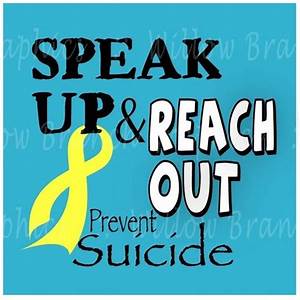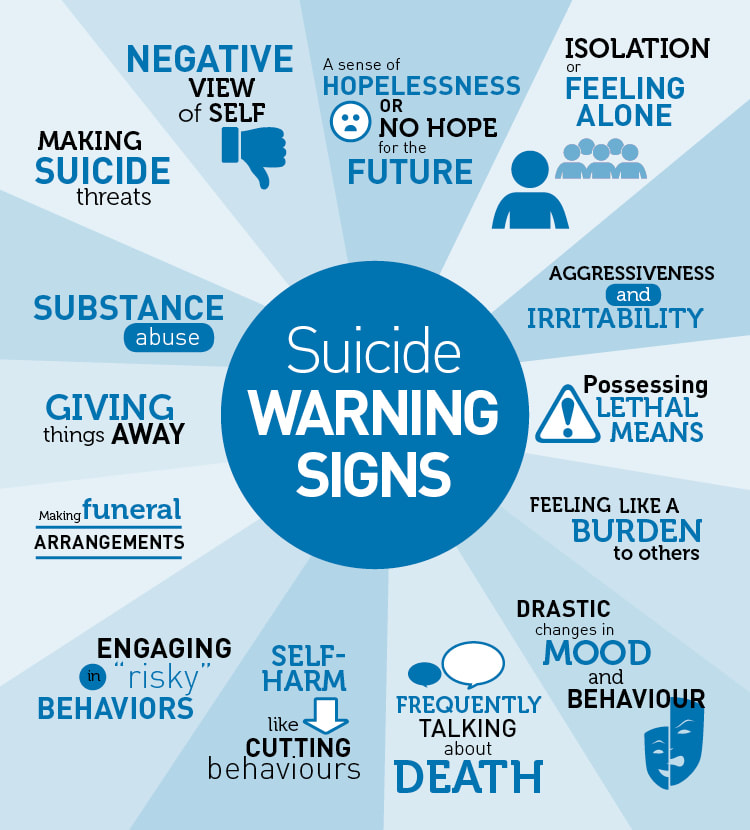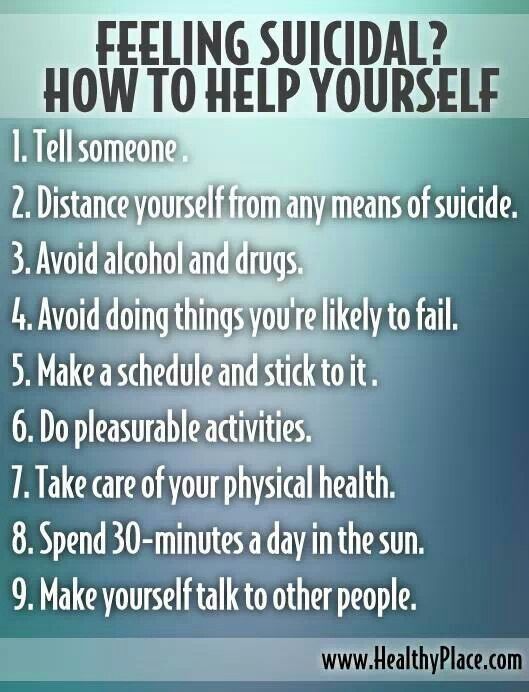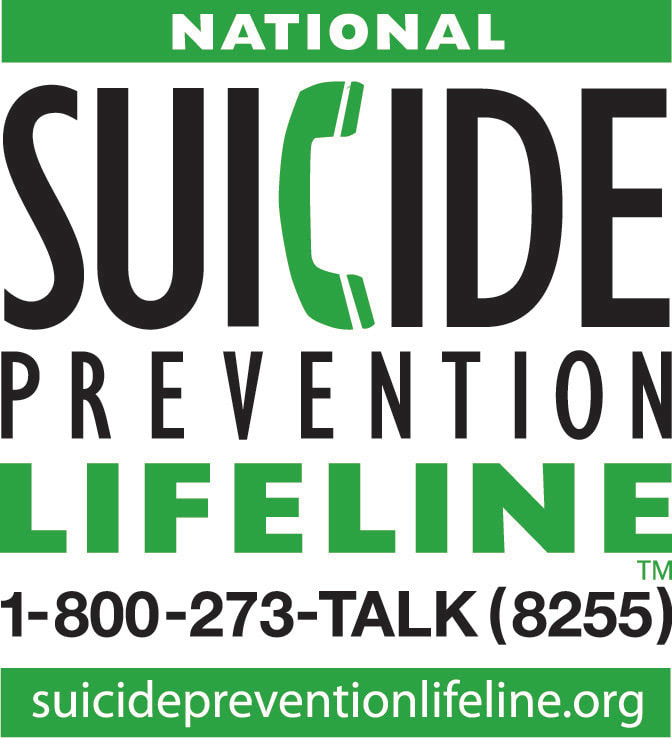| Life is Precious. It is also complicated. The difficulty lies in the small things: how you feel; how you perceive something; your support system (or lack thereof); how to handle difficult and/or uncomfortable things; your relationships; and your coping skills. [Did I say “small things”?!?] When a person starts to doubt themselves, their life, or their future, this is devastating. Disappointment and setbacks are temporary. Don’t make a permanent decision based on current, difficult circumstances! |
| Warning signs of Suicidal Ideation or Intent:
|
Note: Up to 75% of suicide completion occurs after exhibiting one or more warning signs. Pay close attention to those around you. Get/Offer help! |
How to (get or ask for) help:
1. Your emotions are not fixed - they are constantly changing. How you feel today may not be the same as how you felt yesterday or how you'll feel tomorrow or next week.
2. Your absence would create grief and anguish in the lives of friends and loved ones.
3. There are many things you can still accomplish in your life.
4. There are sights, sounds, and experiences in life that have the ability to delight and lift you - and that you would miss.
5. Your ability to experience pleasurable emotions is equal to your ability to experience distressing emotions.

Step #1: Promise not to do anything right now
Even though you’re in a lot of pain right now, give yourself some distance between thoughts and action. Make a promise to yourself: "I will wait 24 hours and won't do anything drastic during that time." Or, wait a week.
Thoughts and actions are two different things—your suicidal thoughts do not have to become a reality. There is no deadline, no one's pushing you to act on these thoughts immediately. Wait. Wait and put some distance between your suicidal thoughts and suicidal action.
Step #2: Avoid drugs and alcohol
Suicidal thoughts can become even stronger if you have taken drugs or alcohol. It is important to not use nonprescription drugs or alcohol when you feel hopeless or are thinking about suicide.
Step #3: Make your home safe
Remove things you could use to hurt yourself, such as pills, knives, razors, or firearms. If you are unable to do so, go to a place where you can feel safe. If you are thinking of taking an overdose, give your medicines to someone who can return them to you one day at a time as you need them.
Step #4: Don’t keep these suicidal feelings to yourself
Many of us have found that the first step to coping with suicidal thoughts and feelings is to share them with someone we trust. It may be a family member, friend, therapist, member of the clergy, teacher, family doctor, coach, or an experienced counselor at the end of a helpline. Find someone you trust and let them know how bad things are. Don’t let fear, shame, or embarrassment prevent you from seeking help. And if the first person you reach out to doesn’t seem to understand, try someone else. Just talking about how you got to this point in your life can release a lot of the pressure that’s building up and help you find a way to cope.
Step #5: Take hope - people DO get through this
Even people who feel as badly as you are feeling now manage to survive these feelings. Take hope in this. There is a very good chance that you are going to live through these feelings, no matter how much self-loathing, hopelessness, or isolation you are currently experiencing. Just give yourself the time needed and don’t try to go it alone.
| Talk about how you feel:
|
| Things to do:
|

- Being alone. Solitude can make suicidal thoughts even worse. Visit a friend, or family member, or pick up the phone and call a crisis helpline.
- Alcohol and drugs. Drugs and alcohol can increase depression, hamper your problem-solving ability, and can make you act impulsively.
- Doing things that make you feel worse. Listening to sad music, looking at certain photographs, reading old letters, or visiting a loved one’s grave can all increase negative feelings.
- Thinking about suicide and other negative thoughts. Try not to become preoccupied with suicidal thoughts as this can make them even stronger. Don’t think and rethink negative thoughts. Find a distraction. Giving yourself a break from suicidal thoughts can help, even if it’s for a short time.
| Resources:
|
|
Author
Bree Winkler LPC is a licensed professional counselor in Atlanta, GA. Bree specializes in helping adults and adolescents manage depression, anxiety, anger, and relationship issues. Bree relied on national resources for this blog on suicide prevention and tips. Contact Bree today to schedule your initial, in person or Skype, session to help you feel better.







 RSS Feed
RSS Feed